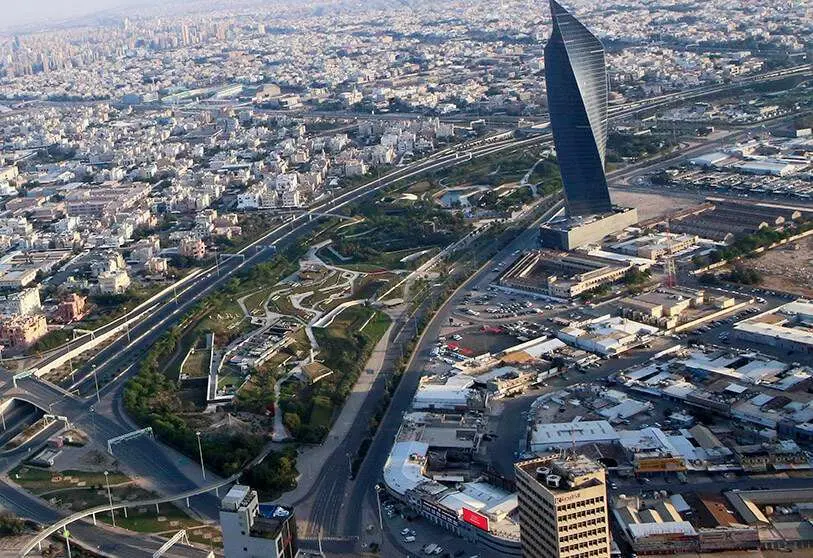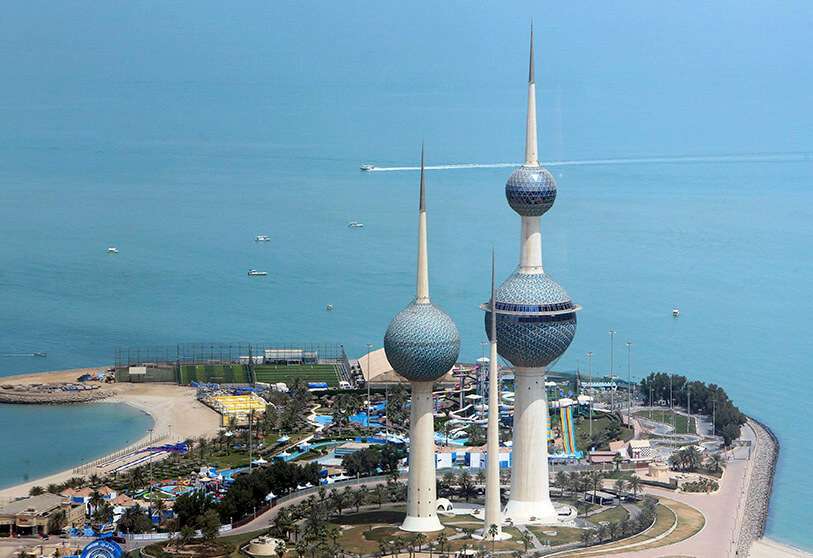Kuwait and its infrastructure priorities

The coronavirus pandemic has affected the economic and financial sphere of the world in general and the Gulf in particular. Kuwait's construction sector has been slowed by the health crisis and is now looking to catch up. Mohamed Hamad al-Ghanim, CEO of Al-Hamra Kuwait, explains the Kuwaiti nation's infrastructure projects.
How has COVID-19 affected the construction sector in Kuwait?
The first shutdown in Kuwait effectively interrupted construction activity for four months. Since then, we have continued to work to make up for lost time. The industry is now beginning to understand how this event will continue to affect supply chains, as they are an intrinsic part of project delivery.
In terms of the global market outlook, most reports indicate a decline in government spending. In the Gulf, this has been caused by the fall and subsequent fluctuation in oil prices, as well as by governments' cash flow difficulties. In Kuwait, the public sector is the driver of construction demand, but only 15% of the government's projected budget is expected to be allocated to capital investment. As a result, the construction sector is expected to struggle over the next two years.
How can the private sector be encouraged to play a greater role in the development of sustainable infrastructure?
Issues relating to public-private partnerships (PPPs) are a subset of the wider debate on how to effectively maximise private sector participation in public spending. There are two possible frameworks: PPPs and engineering, procurement, construction and finance (EPCF) contracts. The predominant framework is PPPs, which are not without significant risks. This risk is evident from the outset of the bidding process, which can take years, locking bidders into extended periods that could end in rejected proposals or, worse, cancelled applications

Shortening the process is essential to increase the appetite of contractors and investors for public infrastructure. Structural changes to the frameworks adopted by the Gulf countries are essential, particularly for PPPs focused on water and energy. PPPs in these two sectors limit the demand risk for investors, as the final product is usually sold to a government agency, which increases the bankability of the project. While some reforms have taken place in Saudi Arabia and the United Arab Emirates, and to a lesser extent in Kuwait, there is still room for improvement.
The EPCFs, as a model, bring together different stakeholders. Stakeholders enter a negotiated process as a single cohort to determine the precise scope of the project, presenting a value proposition that includes an impartial assessment. In the construction sector, this model would benefit GCC countries, and in particular Kuwait, where there will be considerable pressure on public spending for the foreseeable future.
The advantage of the EPCF model is that it does not increase the level of indebtedness of contractors and, at the same time, it offers investors the opportunity to allocate funds appropriately to sound government-backed projects. It also allows governments to benefit from much-needed projects, which in many cases have been delayed or continue to be delayed, without having to allocate immediate resources for their implementation. However, this model requires legislative and cultural changes that have not yet taken place in Kuwait and the Gulf in general.
What are the infrastructure challenges facing the GCC and how can they be addressed?
The disparity between GCC countries in terms of the state of public infrastructure is huge. Countries like Kuwait and Oman need immediate improvements, while the UAE and Qatar are ahead of the game in this area. What all Gulf countries share, however, is the need to broaden their focus from water and energy infrastructure to include mass public transport. In this regard, the GCC's interconnected rail system has been an unfinished project for a decade. The investment required for rail infrastructure is considerable, while the expected returns are very low. Thus, simply placing the project in a PPP framework is no guarantee of success.
At the same time, the Gulf countries are lagging behind in terms of sustainable infrastructure investments. The World Economic Forum's Global Future Council on Investing in Sustainable Development Goals has identified global gaps that need to be addressed immediately. To achieve this, a cultural change is urgently needed: public spending on infrastructure must focus on value rather than cost. For example, efforts have focused on reducing the energy consumption of buildings by increasing efficiency and solar energy production. Beyond energy efficiency, to meet the region's challenges, the public and private sectors need to undertake a review of procurement processes and infrastructure usage targets to achieve harmonisation across the GCC.








